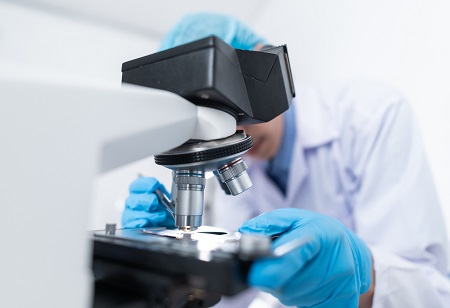India Pharma Outlook Team | Monday, 07 August 2023

Biosense Webster, Inc., a global pioneer in cardiac arrhythmia treatment and a subsidiary of Johnson & Johnson MedTech, announced that the US Food and Drug Administration (FDA) has approved various products in its market-leading cardiac ablation portfolio for a zero fluoroscopy workflow. Thermocool Smarttouch SF catheter -- the most commonly used ablation catheter in the world for RF ablation, Thermocool Smarttouch Catheter, Carto Vizigo Bi-Directional Guiding Sheath, Pentaray NAV ECO High Density Mapping Catheter, Decanav Mapping Catheters, and Webster CS Catheter can all be used in this workflow.
The modified process suggests that direct imaging guidance, such as ultrasonography, could be utilised instead of fluoroscopy. Fluoroscopy is a sort of medical imaging that displays a continuous X-ray image on a monitor and is used to diagnose or treat patients in a range of tests and procedures. Fluoroscopy can result in relatively substantial radiation doses, particularly for complex interventional procedures that necessitate the use of fluoroscopy for an extended length of time. “Cardiac ablation procedures for the treatment of atrial fibrillation (AFib) usually require fluoroscopy to guide the advancement and positioning of intracardiac catheters, resulting in considerable radiation exposure for patients, operators, and support medical staff as well as a high orthopedic burden from protective equipment such as lead aprons,” explained Jose Osorio, MD, FHRS, president of Heart Rhythm Clinical and Research Solutions. “Eliminating or reducing radiation exposure is beneficial to patients as well as physicians and staff working every day in the electrophysiology lab.” “The label change approved by the FDA underscores that the Biosense Webster integrated ecosystem, anchored by the CARTO 3 mapping and navigation system, together with our diagnostic and treatment catheters, enables workflows with zero fluoroscopy, which improves safety, and efficiency of cardiac ablation procedures,” said Jasmina Brooks, president, Biosense Webster. “As a result of this update, our teams can now proactively discuss the fluoroscopy alternative workflow with our customers to reinforce the benefits of the Biosense Webster portfolio of products.”
"At Biosense Webster, we are committed to advancing innovative technologies that enable safe, effective, and efficient cardiac ablation procedures, as well as expanding the body of evidence supporting how our technologies are used to improve patient lives," said Anthony Hong, vice president, preclinical & clinical research and medical affairs, Johnson & Johnson's cardiovascular & specialty solutions. “Our novel approach to evidence generation, utilizing real-world evidence from the REAL AF Registry, has helped us secure regulatory approval for our fluoroscopy alternative workflow, and I’m looking forward to utilizing this approach in the future to lower study costs and achieve faster regulatory milestones.”